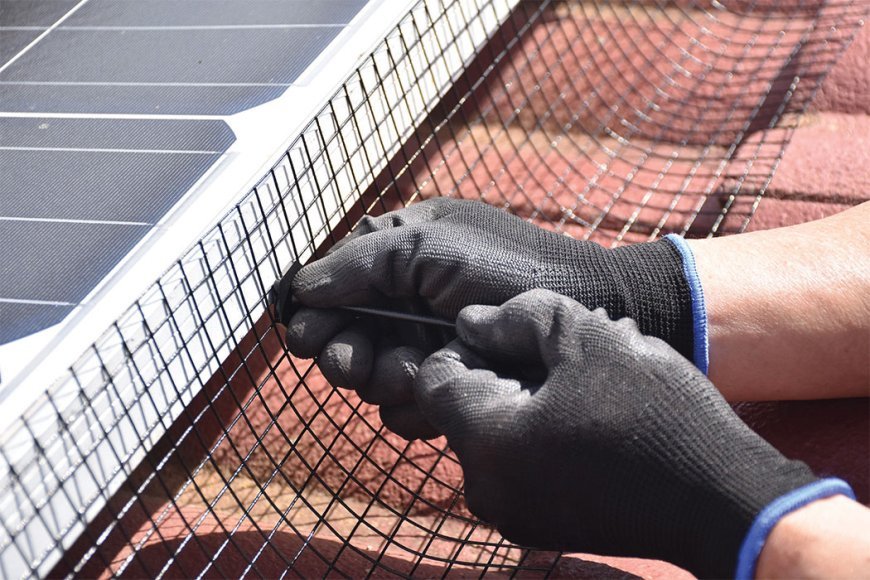Protect Your Solar Panels: A Guide to Longevity and Efficiency

In a quiet suburban neighborhood, Sarah gazed proudly at her newly installed solar panels, their sleek surfaces gleaming under the summer sun. She envisioned years of clean energy and slashed utility bills. But one stormy night, a fallen branch scratched her panels, and debris began clogging their efficiency. Determined to safeguard her investment, Sarah embarked on a journey to learn how to protect your solar panels. Her story mirrors that of countless homeowners who invest in solar energy, only to realize that proper care is key to maximizing their system’s lifespan and performance. This article explores practical, actionable steps to protect your solar panels, ensuring they deliver clean energy for decades.
Why Protecting Your Solar Panels Matters
Solar panels are a significant investment, often costing thousands of dollars. Without proper care, their efficiency can decline, leading to reduced energy output and higher maintenance costs. Protecting your solar panels isn’t just about preserving their appearance—it’s about ensuring optimal performance, extending their lifespan (typically 25–30 years), and maximizing your return on investment.
The Risks to Your Solar Panels
Solar panels face various threats, including:
- Weather Elements: Hail, heavy rain, snow, and strong winds can damage panels or loosen mounts.
- Debris Accumulation: Leaves, dirt, bird droppings, and pollen can block sunlight, reducing efficiency by up to 20%.
- Physical Damage: Falling branches or vandalism can crack glass surfaces or damage cells.
- Pests: Birds, squirrels, or insects may nest under panels, causing wiring issues.
By understanding these risks, you can take proactive steps to protect your solar panels and keep them functioning at peak capacity.
Practical Steps to Protect Your Solar Panels
Here are actionable strategies to safeguard your solar panels from damage and maintain their efficiency.
1. Regular Cleaning for Optimal Performance
Dirt and debris can significantly reduce your panels’ ability to absorb sunlight. Cleaning them every 6–12 months, depending on your environment, is essential.
How to Clean Safely
- Use Soft Tools: Use a soft brush or sponge with mild, non-abrasive soap to avoid scratching the glass.
- Avoid Harsh Chemicals: Stick to water or manufacturer-recommended cleaners to prevent damage to the panel’s protective coating.
- Hire Professionals for Hard-to-Reach Panels: If your panels are on a steep roof, consider professional cleaning services to ensure safety.
Regular cleaning not only boosts efficiency but also allows you to inspect for cracks or other issues early.
2. Weatherproofing Your Solar Panels
Extreme weather can take a toll on your solar system. Here’s how to prepare:
Protecting Against Storms and Hail
- Choose Durable Panels: When installing, opt for panels with high wind and hail resistance ratings (e.g., certified for 1-inch hailstones or 130 mph winds).
- Secure Mounting Systems: Ensure your panels are securely mounted to withstand strong winds. Regular inspections can catch loose bolts or brackets.
- Install Protective Covers: In areas prone to hail, consider temporary covers or hail guards during severe weather forecasts.
Snow and Ice Management
In snowy regions, snow accumulation can block sunlight. Use a soft broom to gently remove snow, and avoid scraping ice, which can scratch the surface. Installing panels at an angle can help snow slide off naturally.
3. Preventing Pest Damage
Pests like birds or rodents can chew wires or nest under panels, causing electrical issues.
Pest-Proofing Tips
- Install Critter Guards: Mesh or netting around the panel edges can deter animals from nesting.
- Regular Inspections: Check for signs of pest activity, such as droppings or chewed wires, during routine maintenance.
- Trim Nearby Trees: Reducing overhanging branches minimizes access points for squirrels and birds.
Monitoring and Maintenance for Long-Term Protection
Proactive monitoring and maintenance are critical to keeping your solar panels in top shape.
4. Regular Inspections
Schedule annual inspections, either by yourself or a professional, to check for:
- Cracks or chips in the glass.
- Loose or corroded wiring.
- Inverter performance issues (the inverter converts solar energy into usable electricity).
Catching problems early can prevent costly repairs or replacements.
5. Monitor Energy Output
A sudden drop in energy production could indicate damage or debris. Use monitoring software provided by your installer to track performance in real-time. If output declines, investigate promptly to identify and fix the issue.
6. Invest in Insurance
Many homeowners’ insurance policies cover solar panels, but it’s worth confirming. Specialized solar panel insurance can protect against damage from storms, vandalism, or other unforeseen events, giving you peace of mind.
Common Mistakes to Avoid
To effectively protect your solar panels, steer clear of these pitfalls:
- Neglecting Maintenance: Skipping regular cleaning or inspections can lead to efficiency losses or undetected damage.
- DIY Repairs Without Expertise: Attempting complex repairs, like fixing wiring, without professional help can void warranties or cause further damage.
- Using Improper Cleaning Methods: High-pressure hoses or abrasive tools can scratch panels, reducing their lifespan.
By avoiding these mistakes, you ensure your panels remain efficient and durable.
The Role of Professional Services
While many protective measures can be DIY, professional services offer expertise and safety. Certified solar technicians can:
- Conduct thorough inspections and maintenance.
- Clean panels in hard-to-reach areas.
- Repair damage without voiding warranties.
When choosing a service, verify their credentials and ensure they’re familiar with your panel brand.
Conclusion
Solar panels are more than just an energy solution—they’re a long-term investment in sustainability and savings. By taking steps to protect your solar panels, you can ensure they deliver clean, efficient energy for decades. From regular cleaning and weatherproofing to pest prevention and professional maintenance, these strategies empower you to maintain your system’s performance and longevity. Like Sarah, who learned to shield her panels from the elements, you too can enjoy the full benefits of solar energy with proper care. Start implementing these tips today, and let your solar panels shine brightly for years to come.
What's Your Reaction?

























































